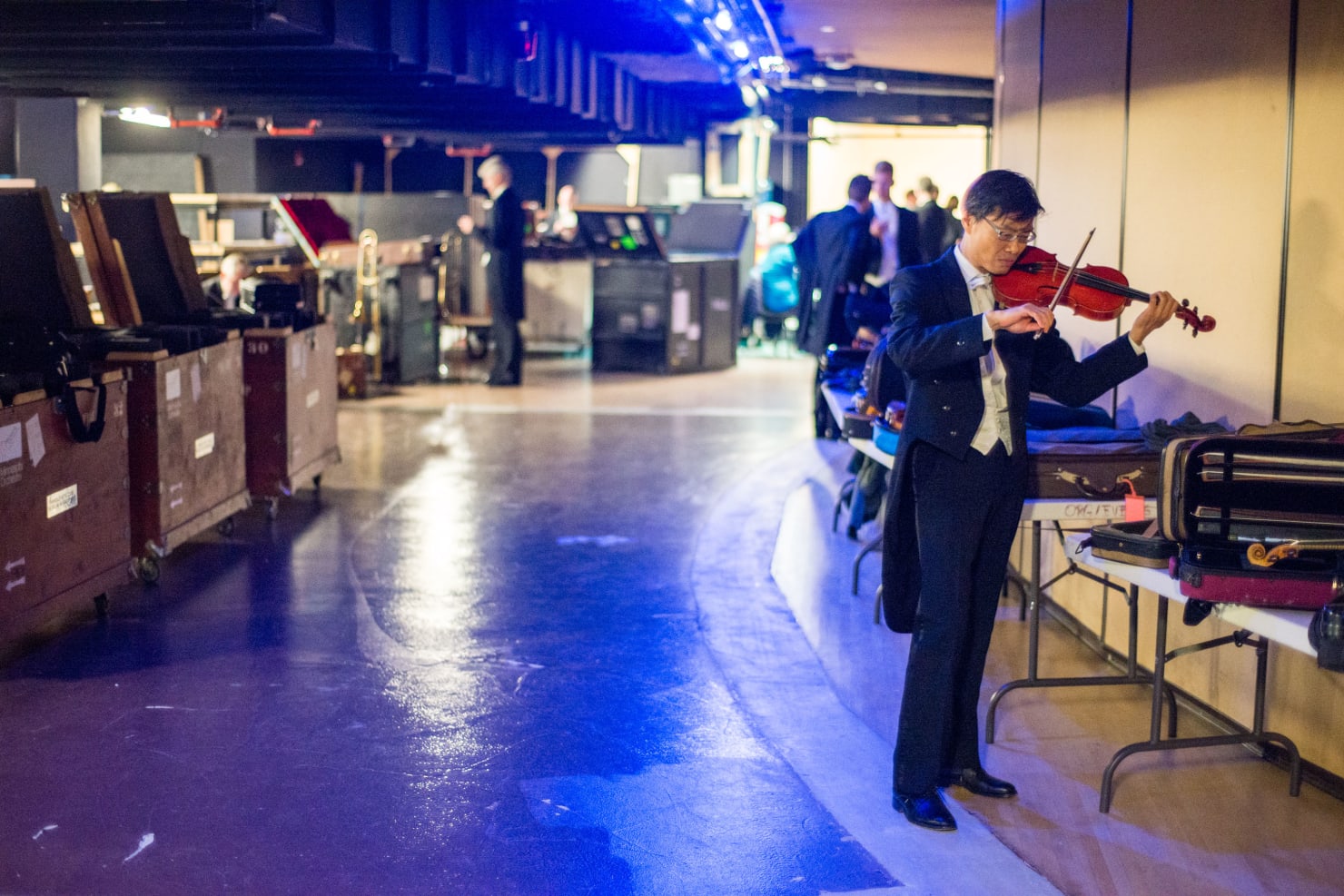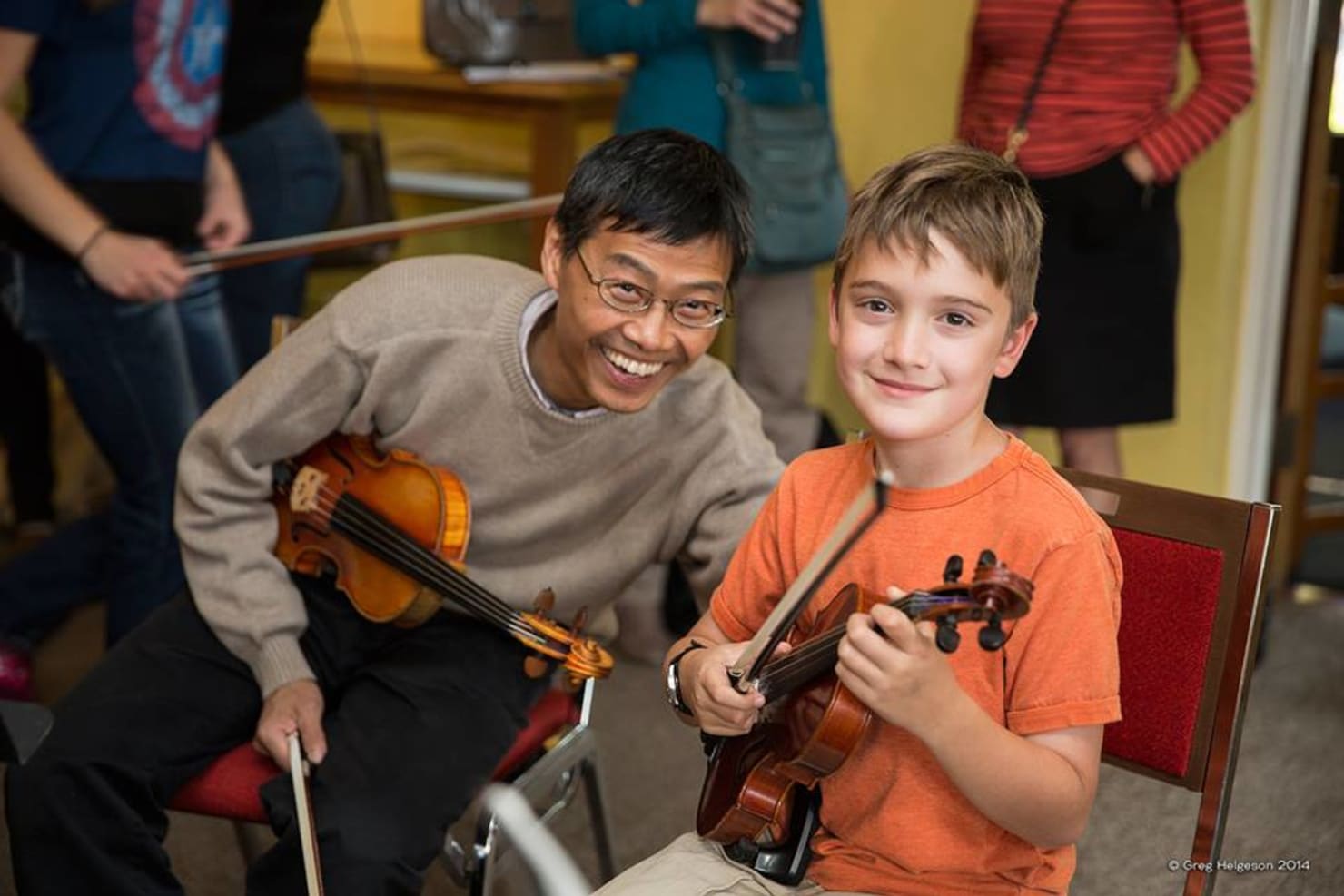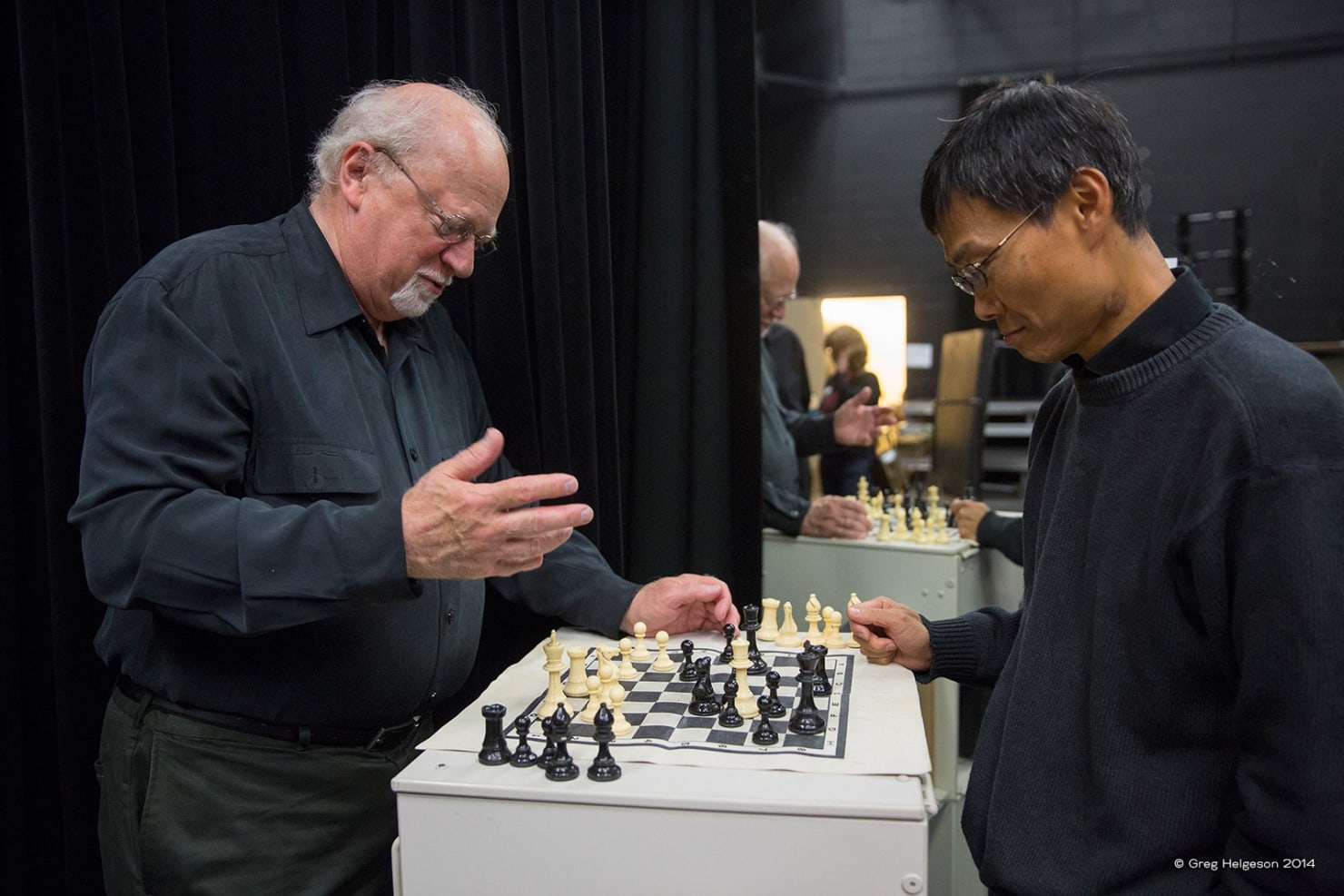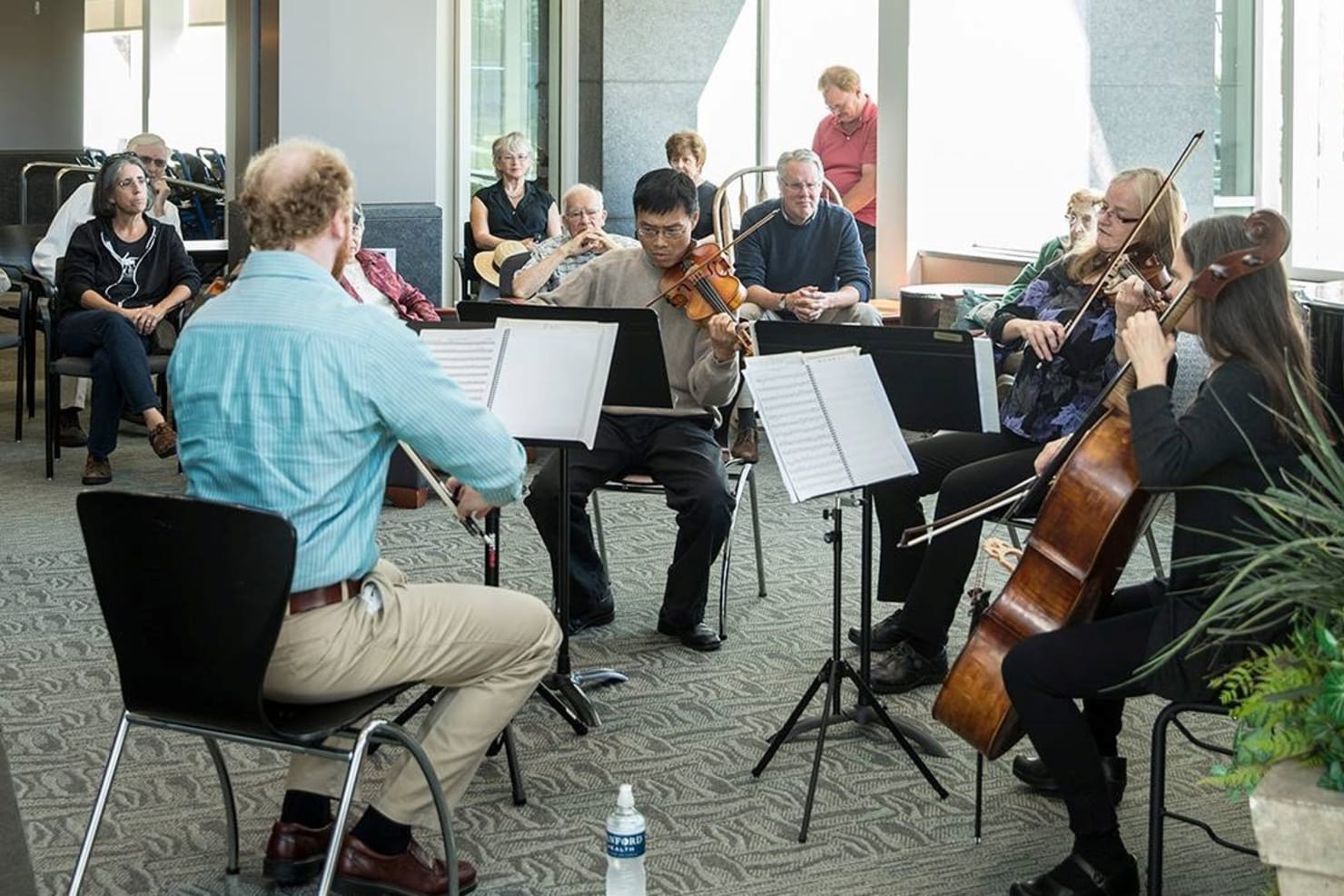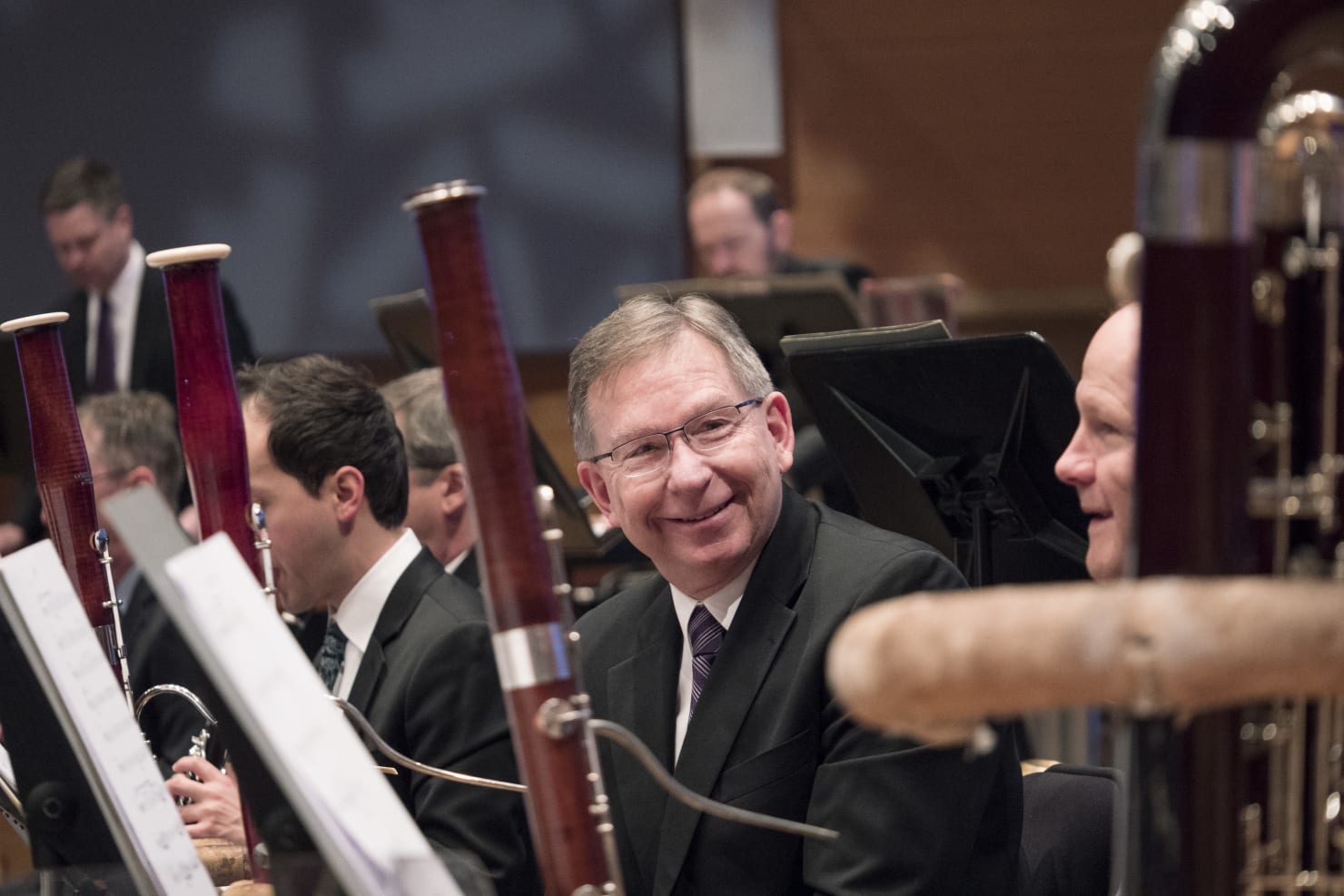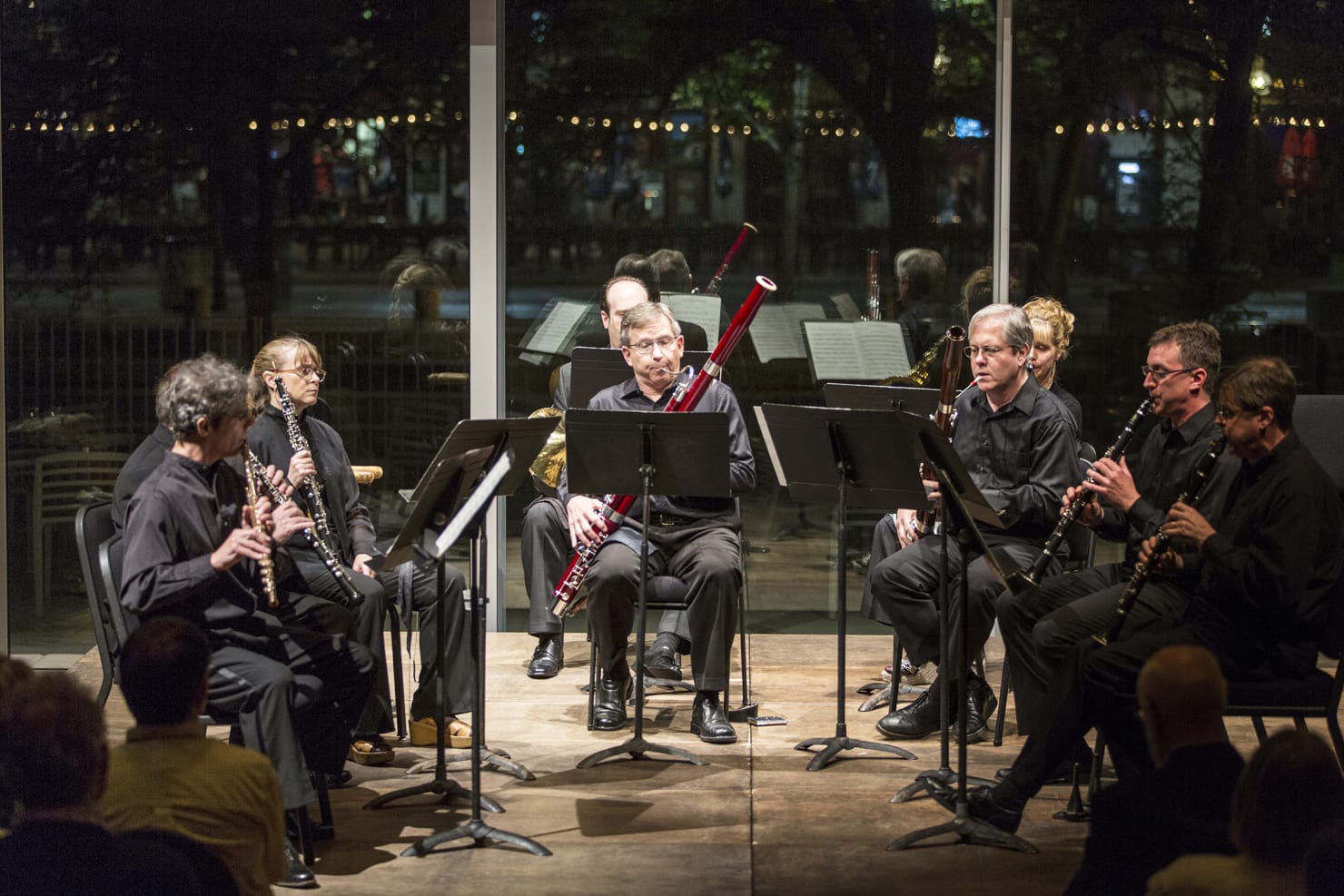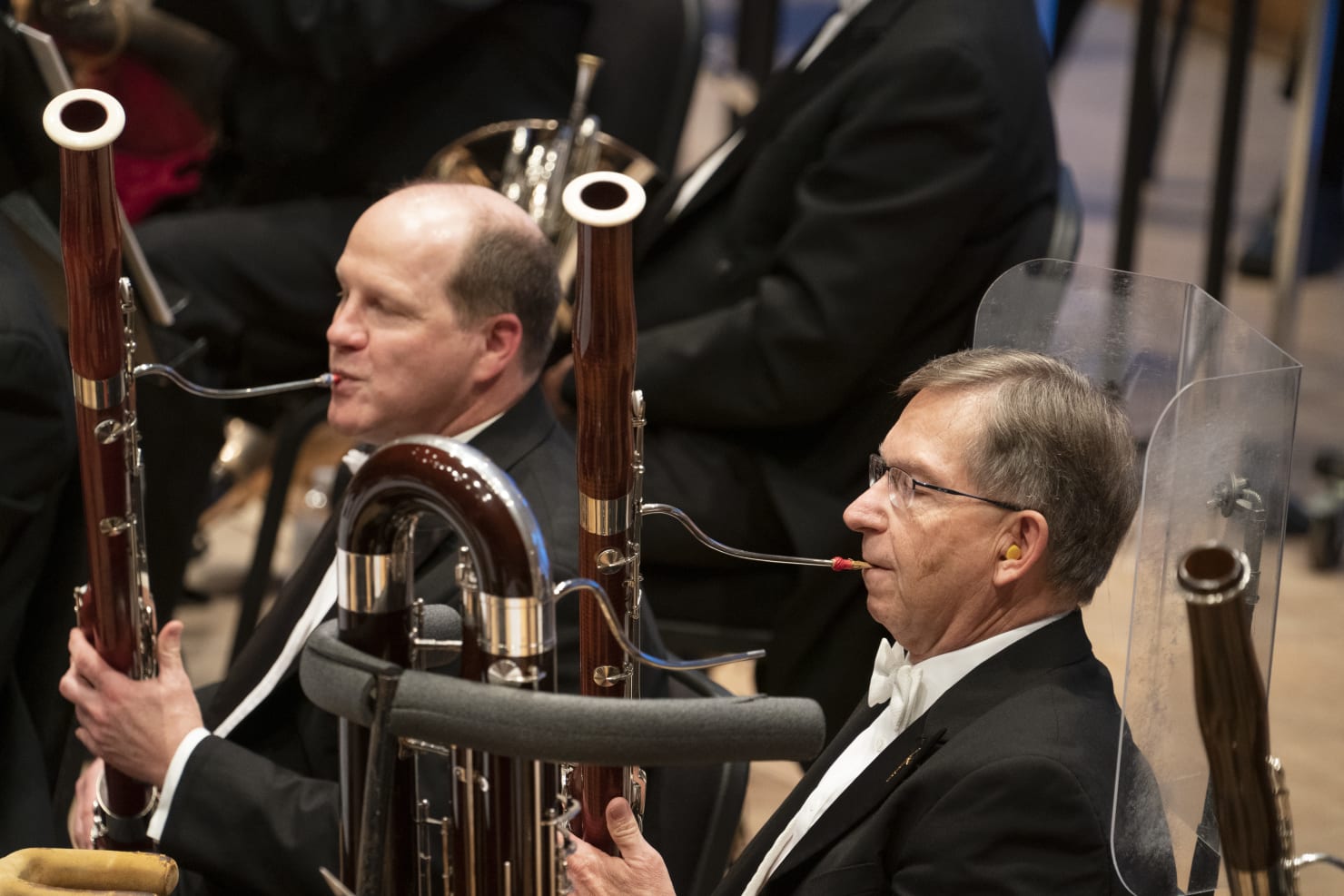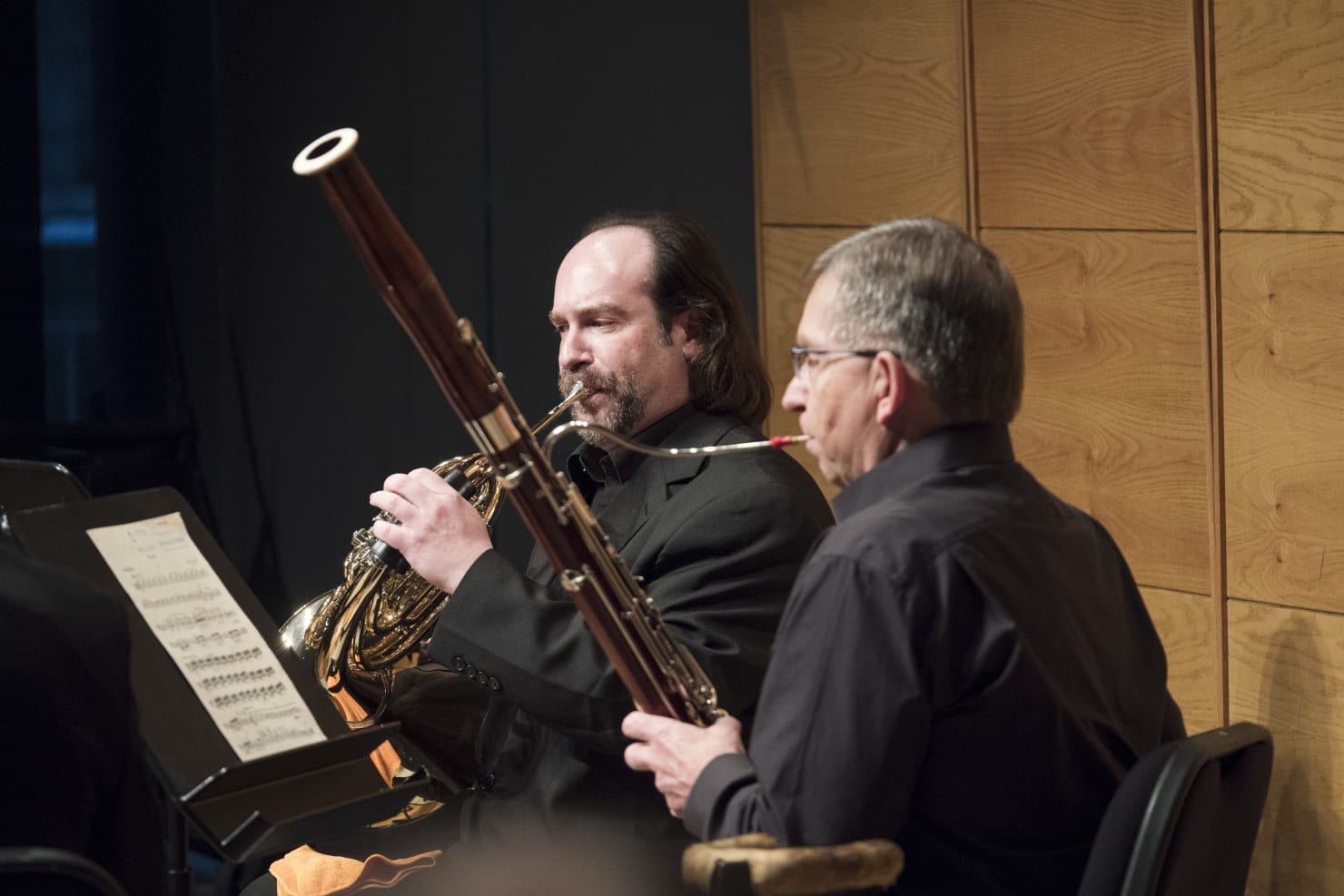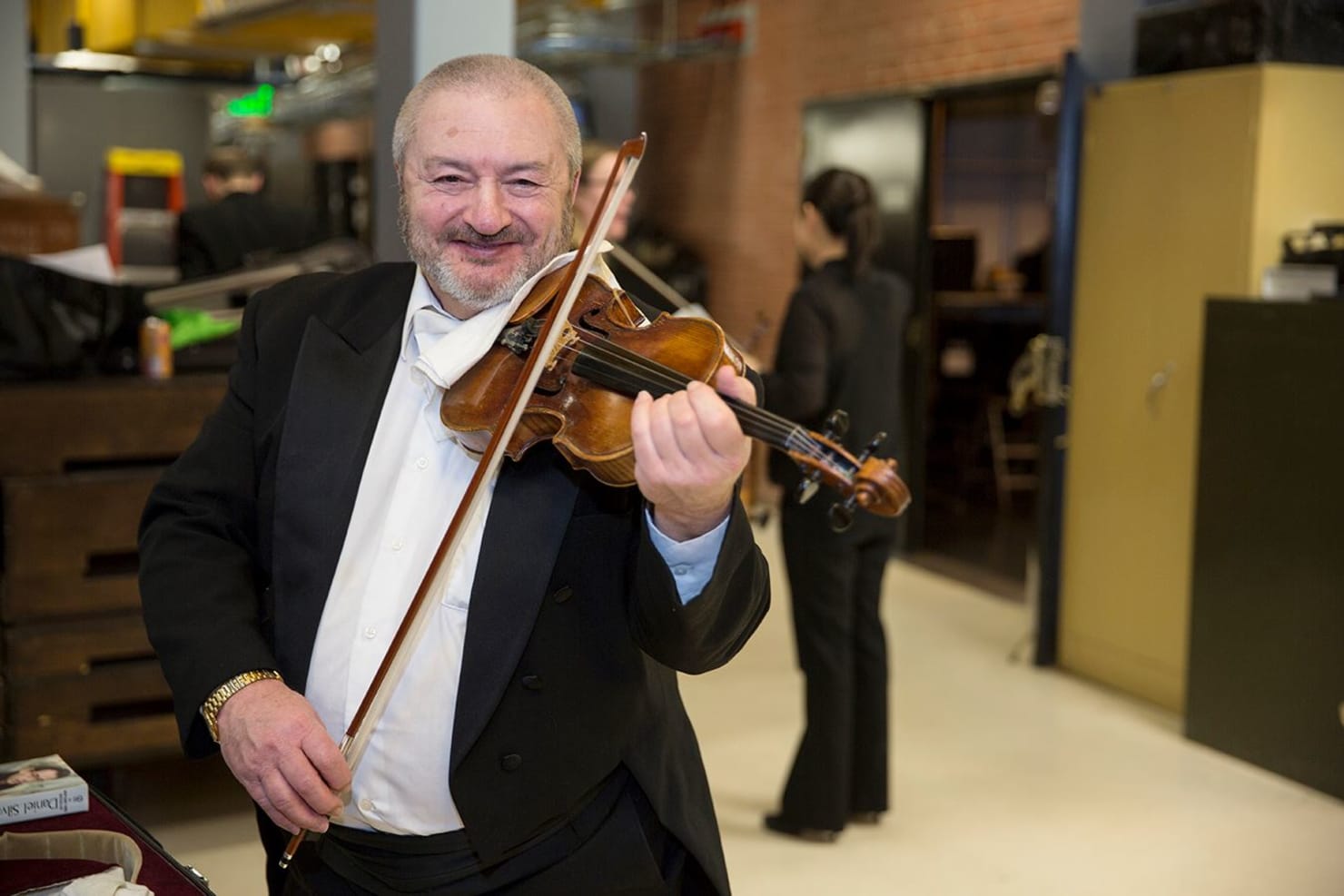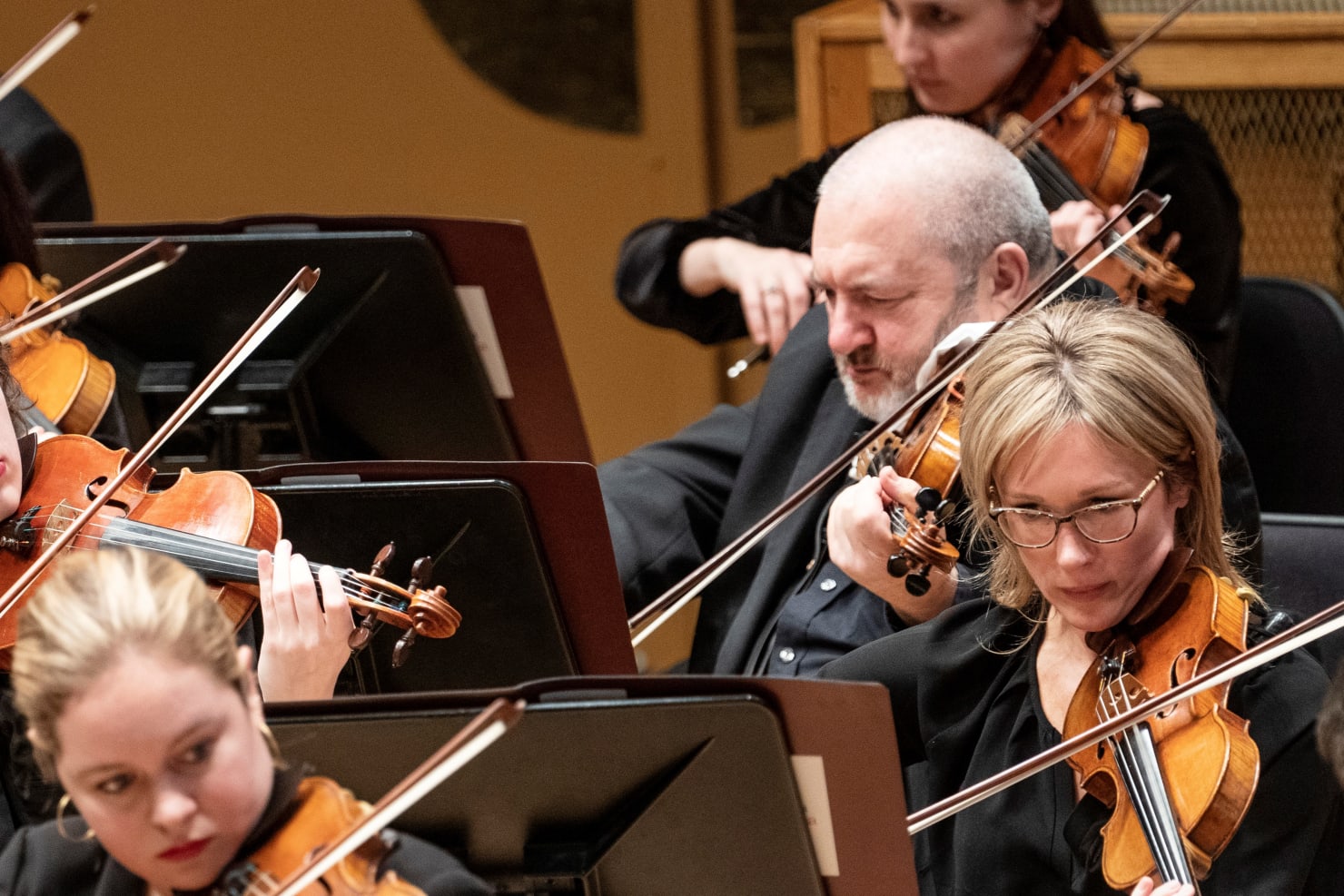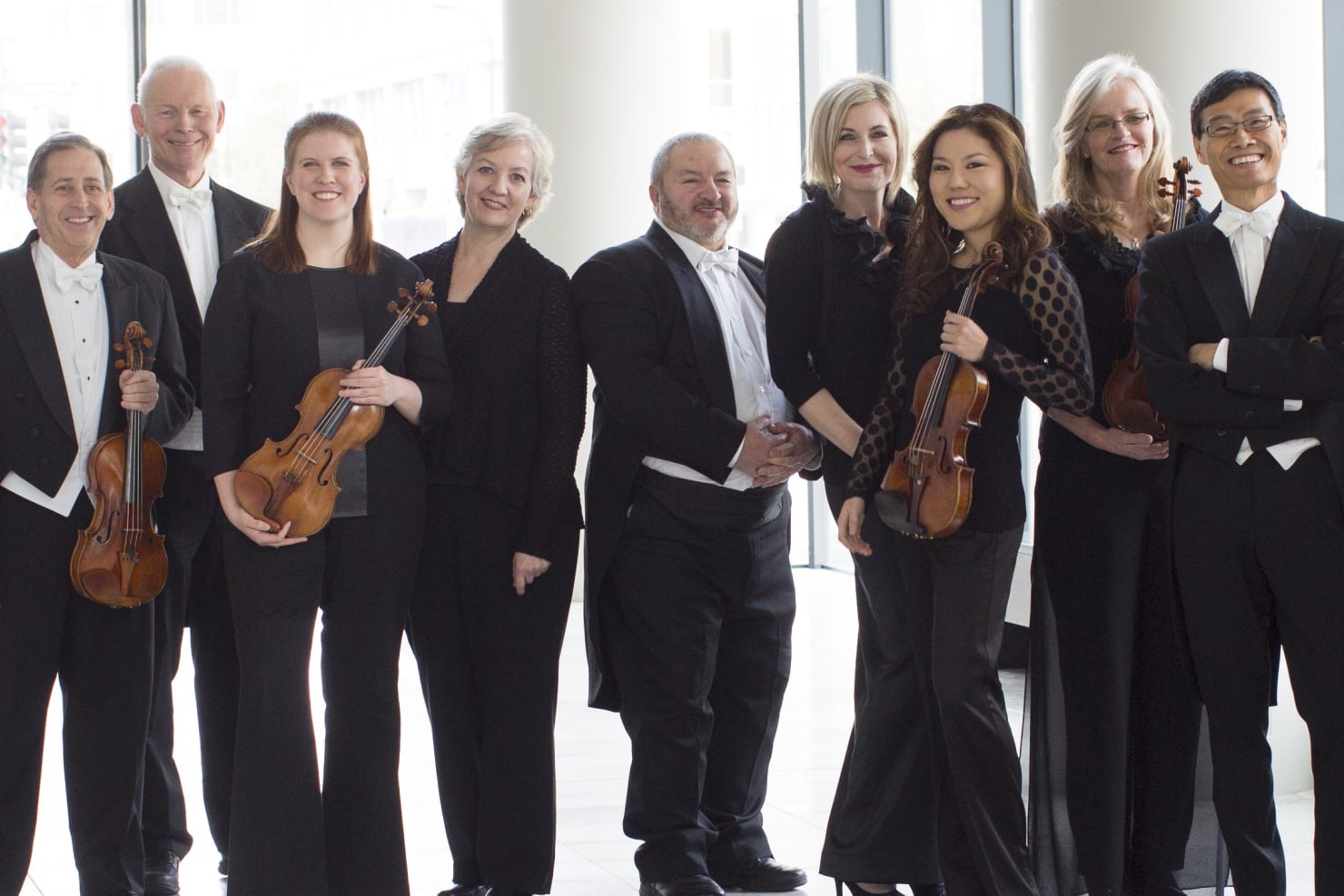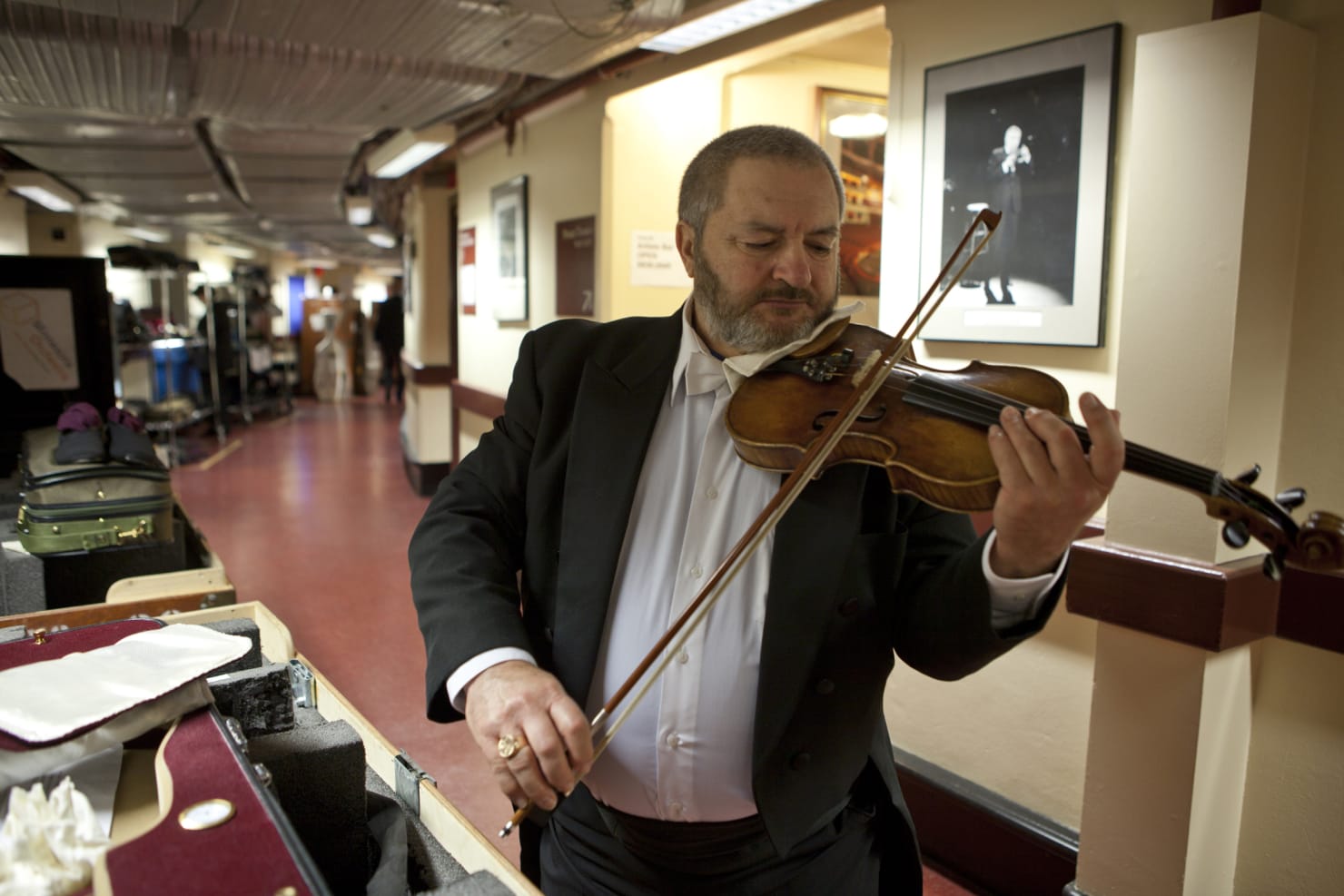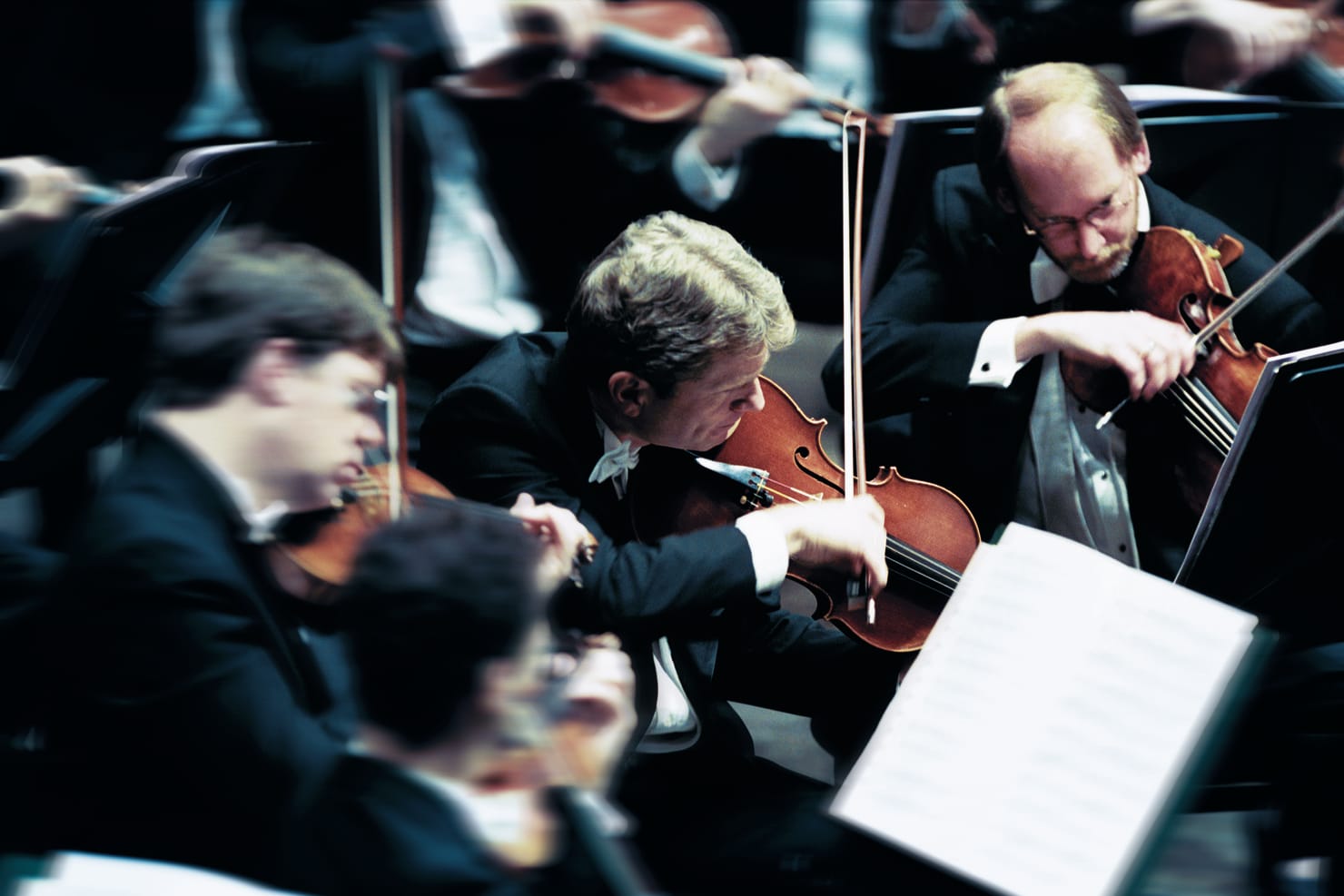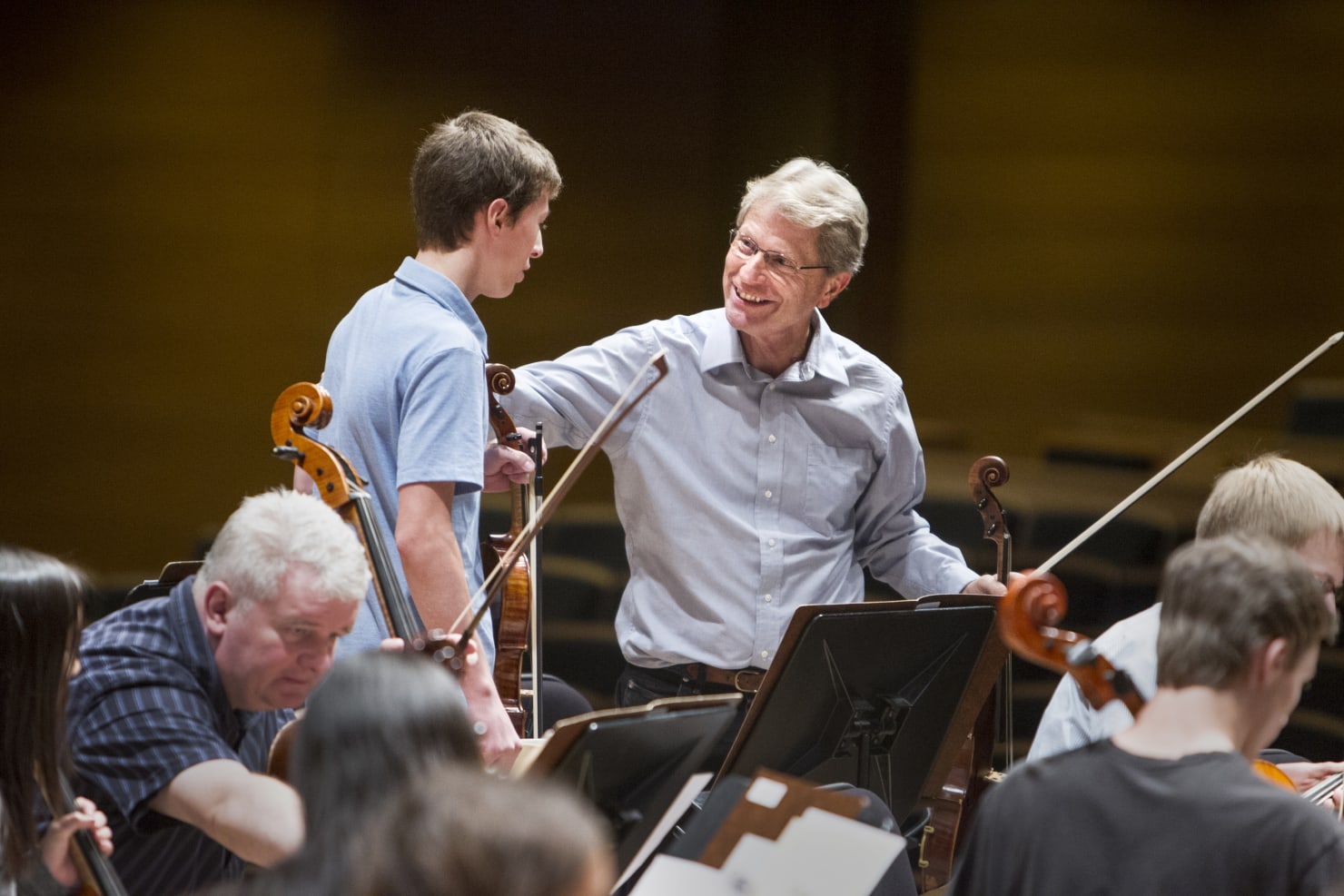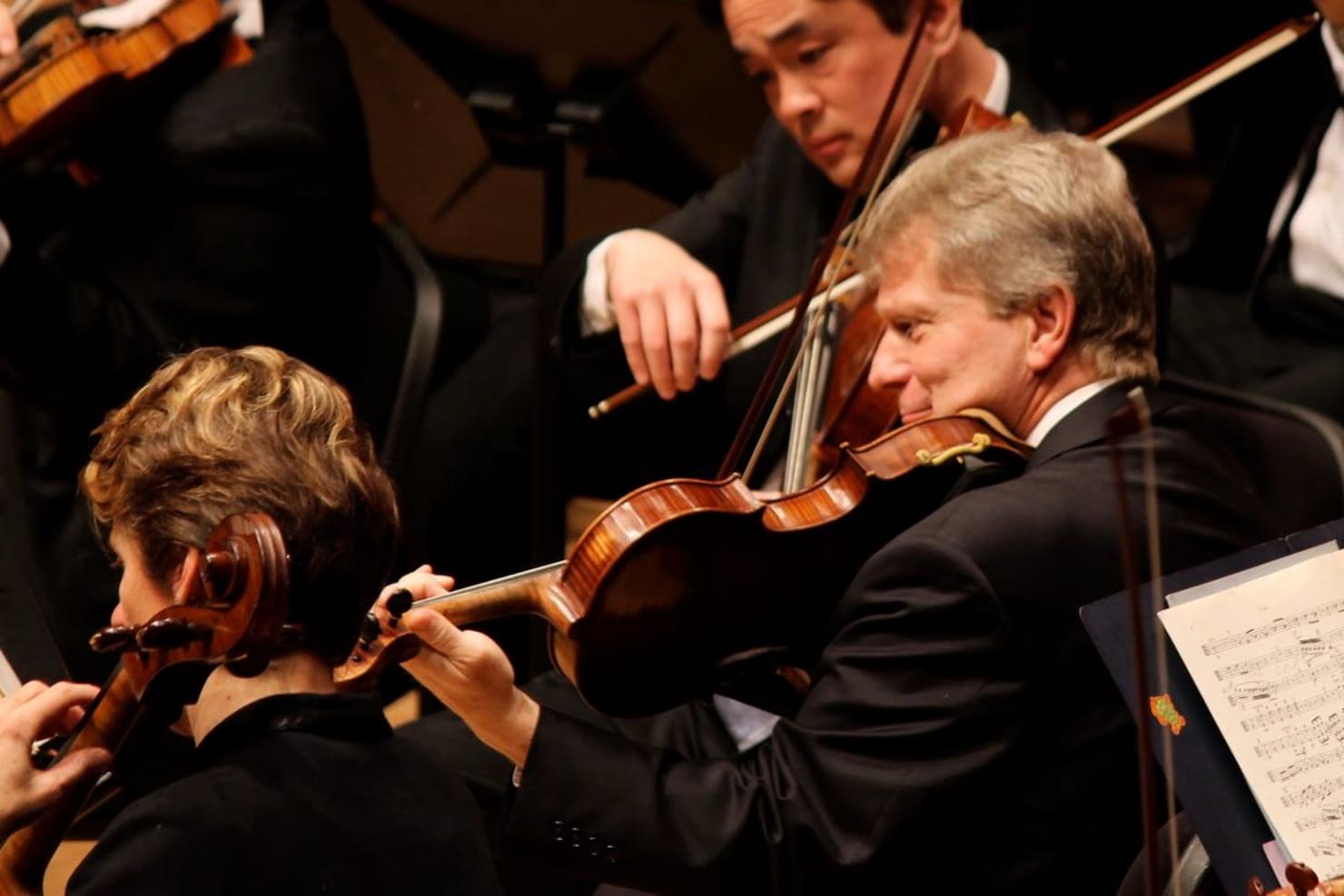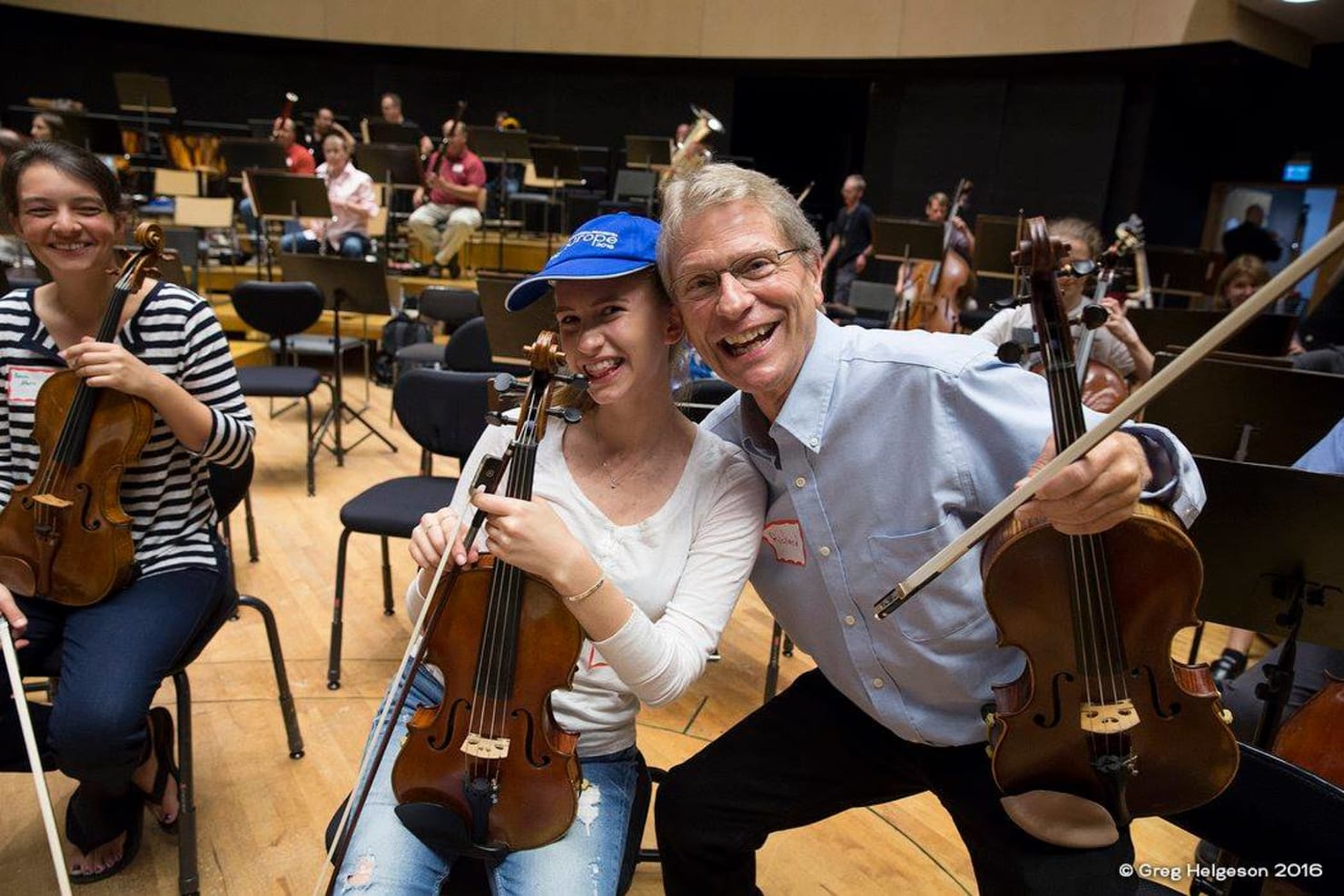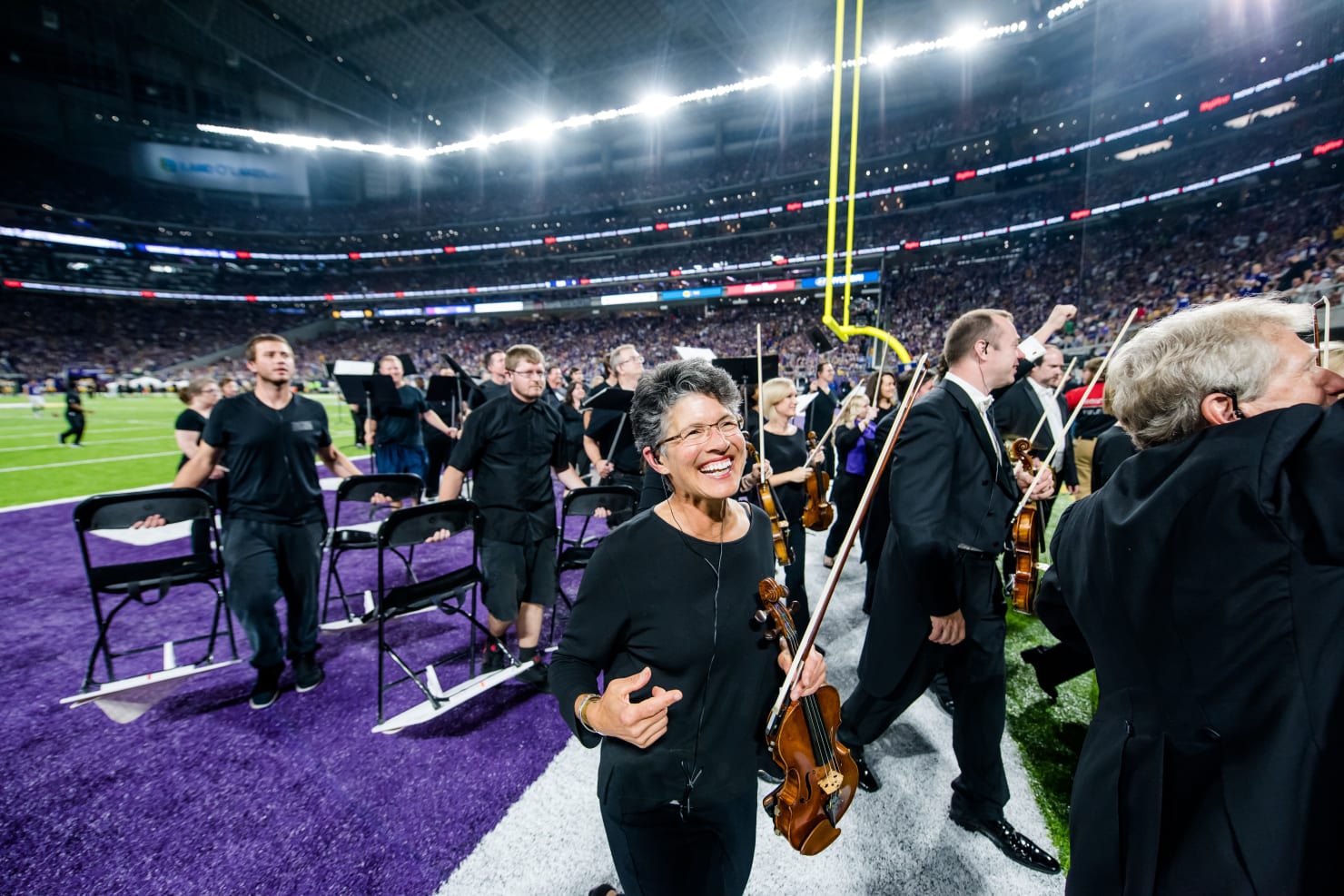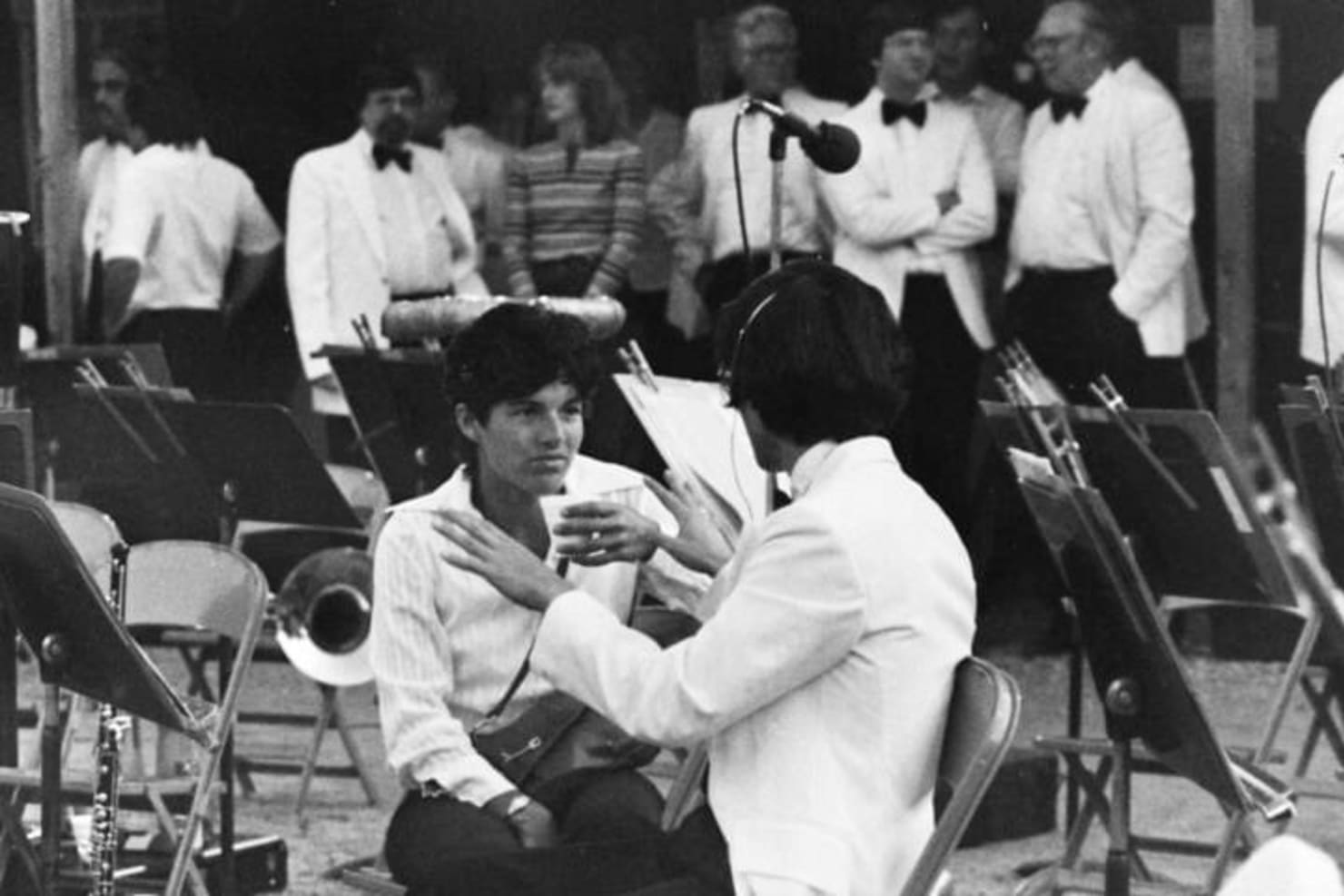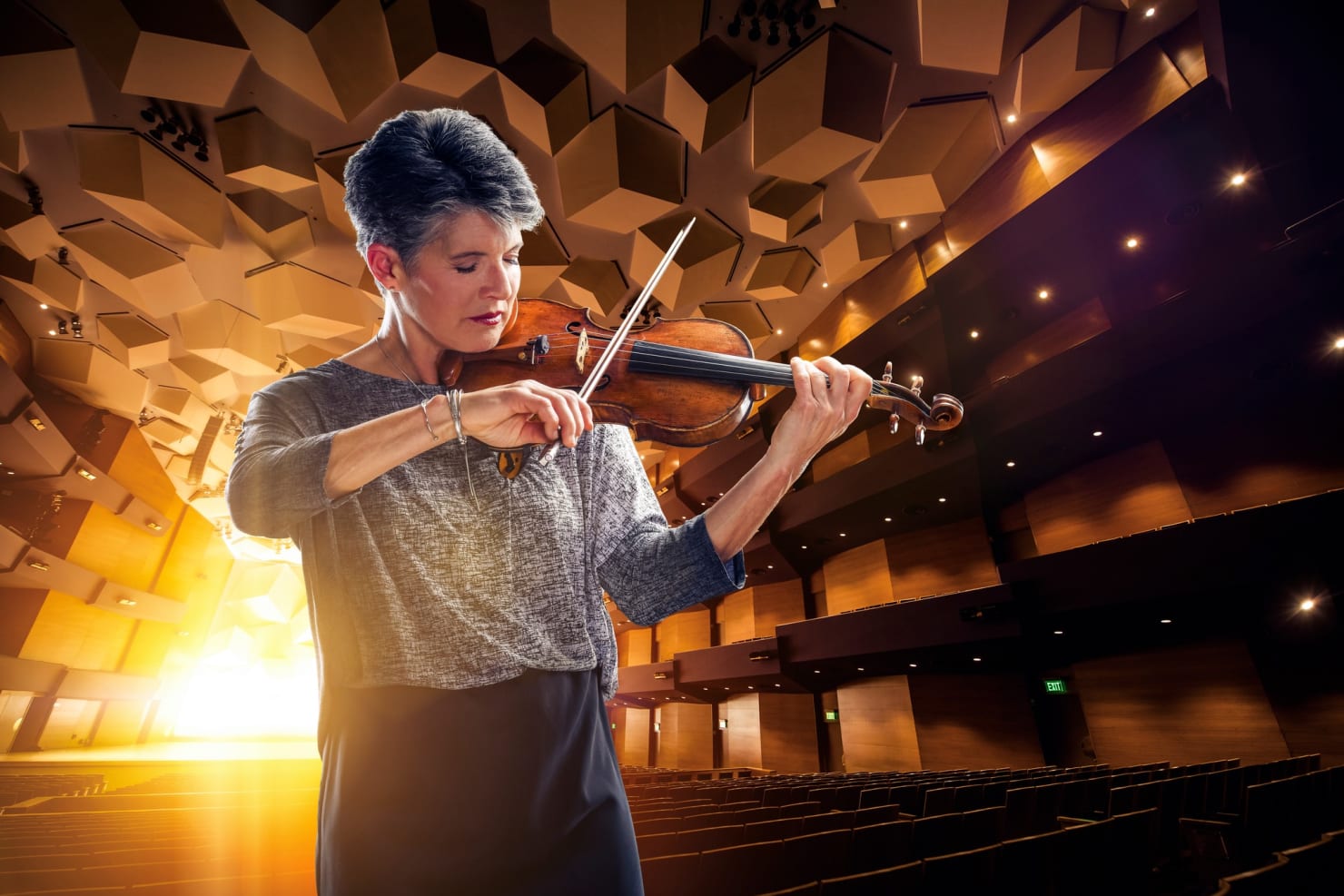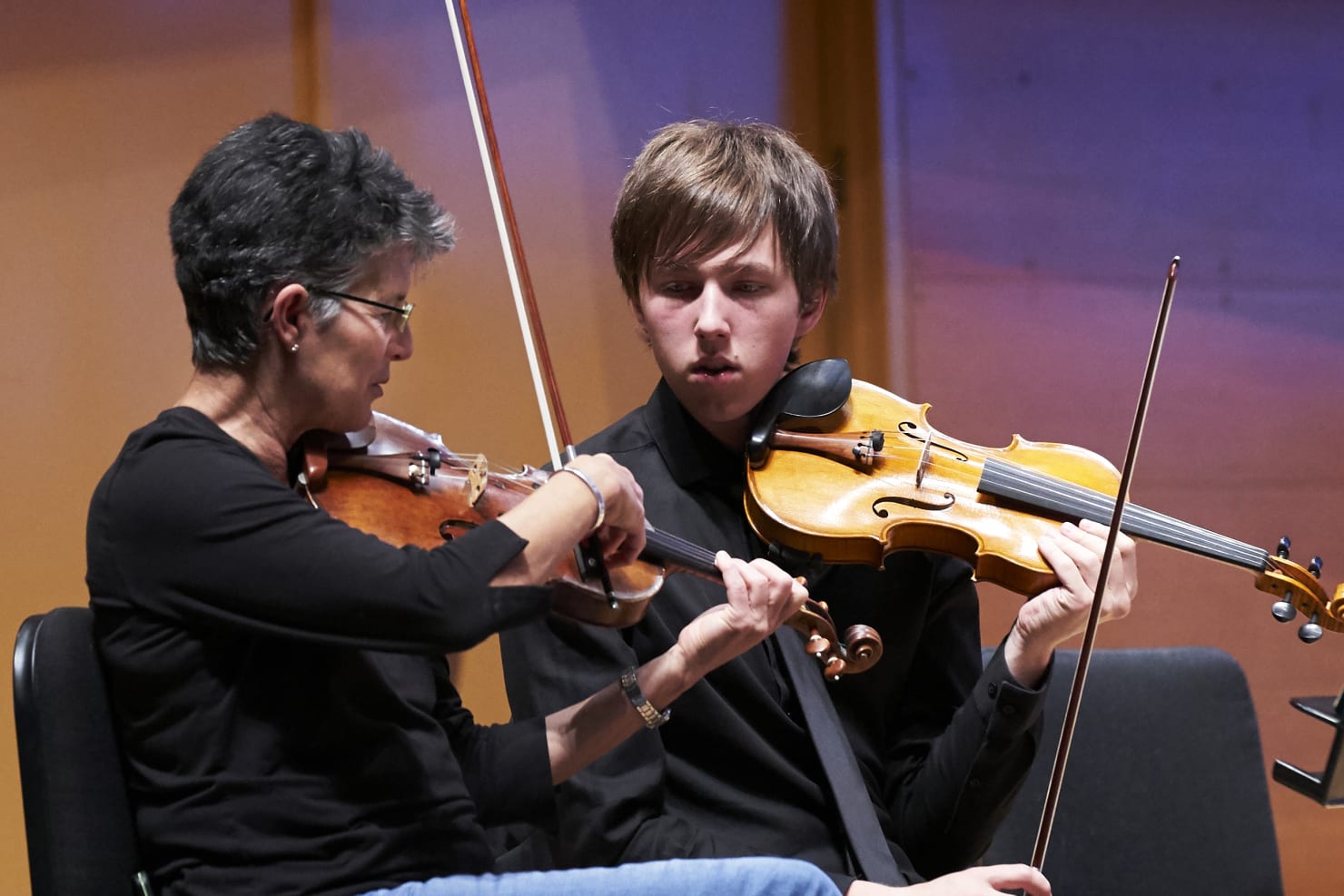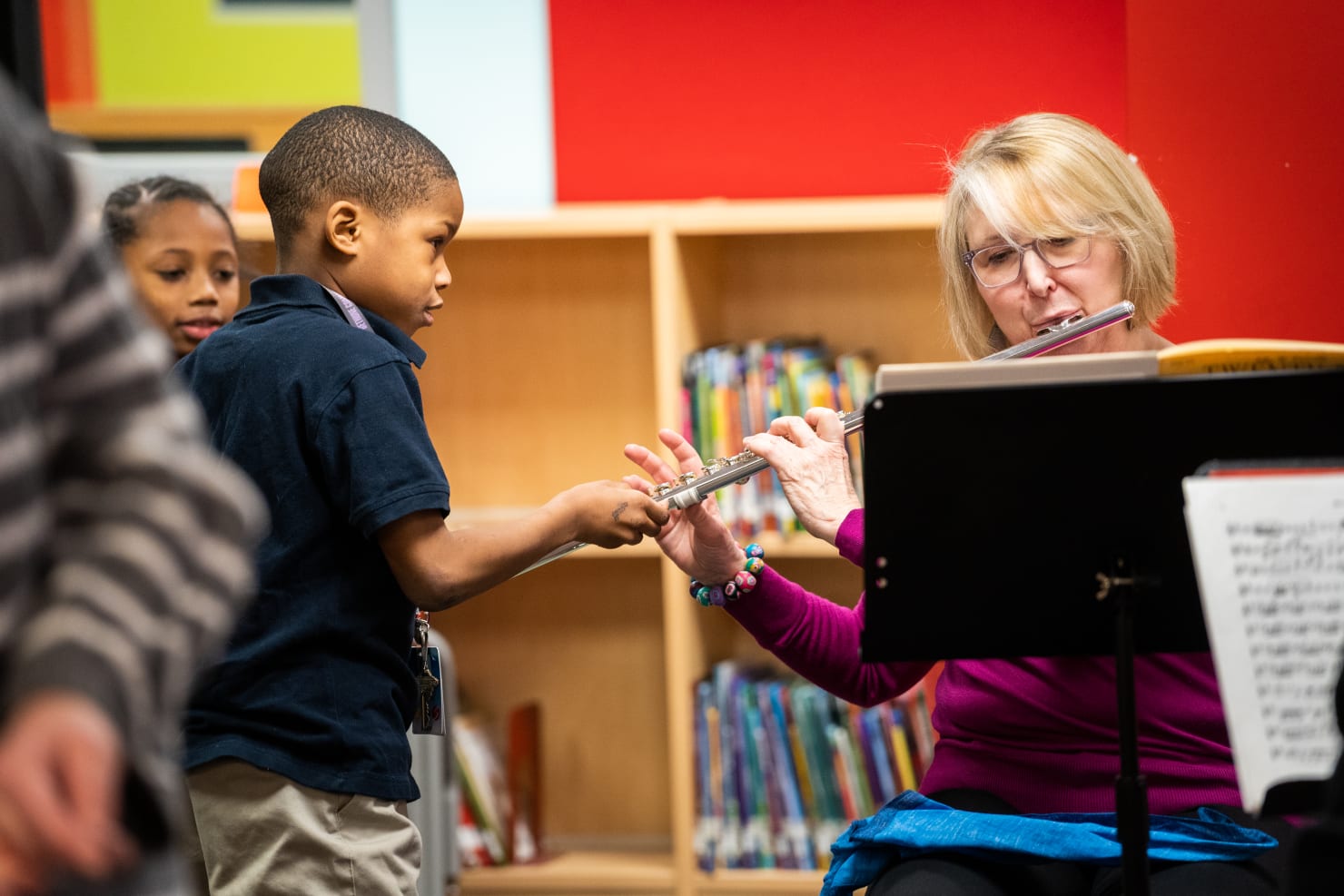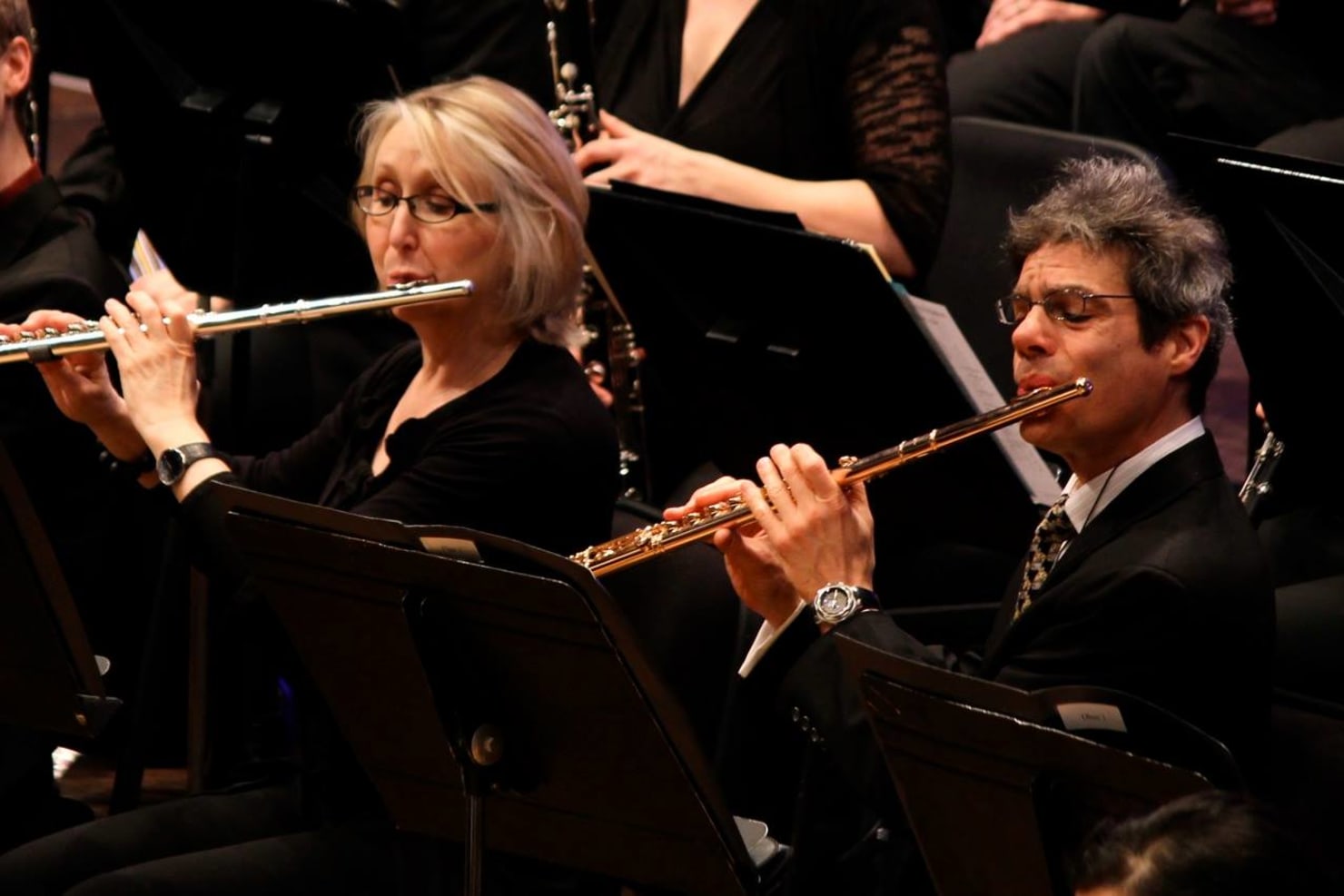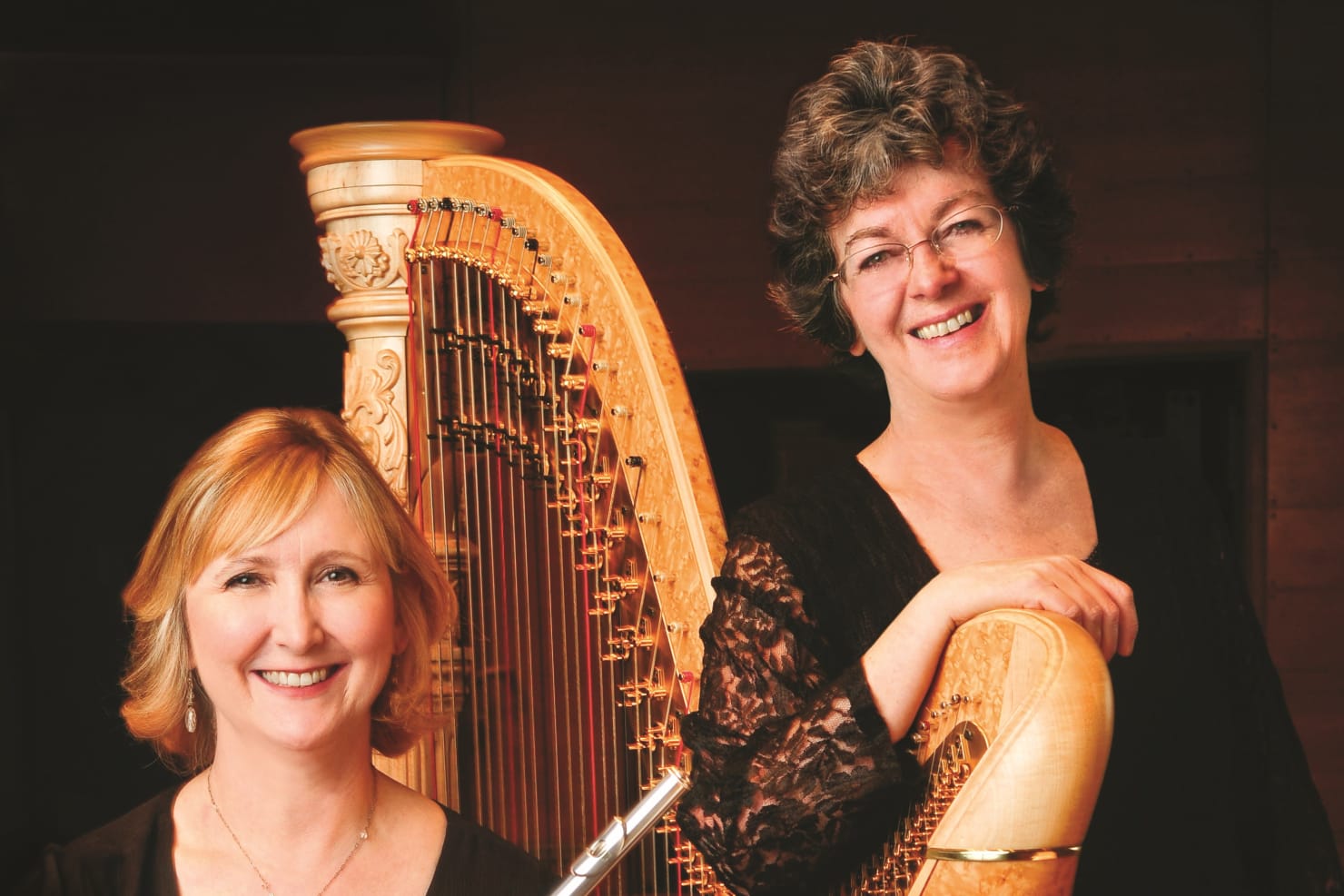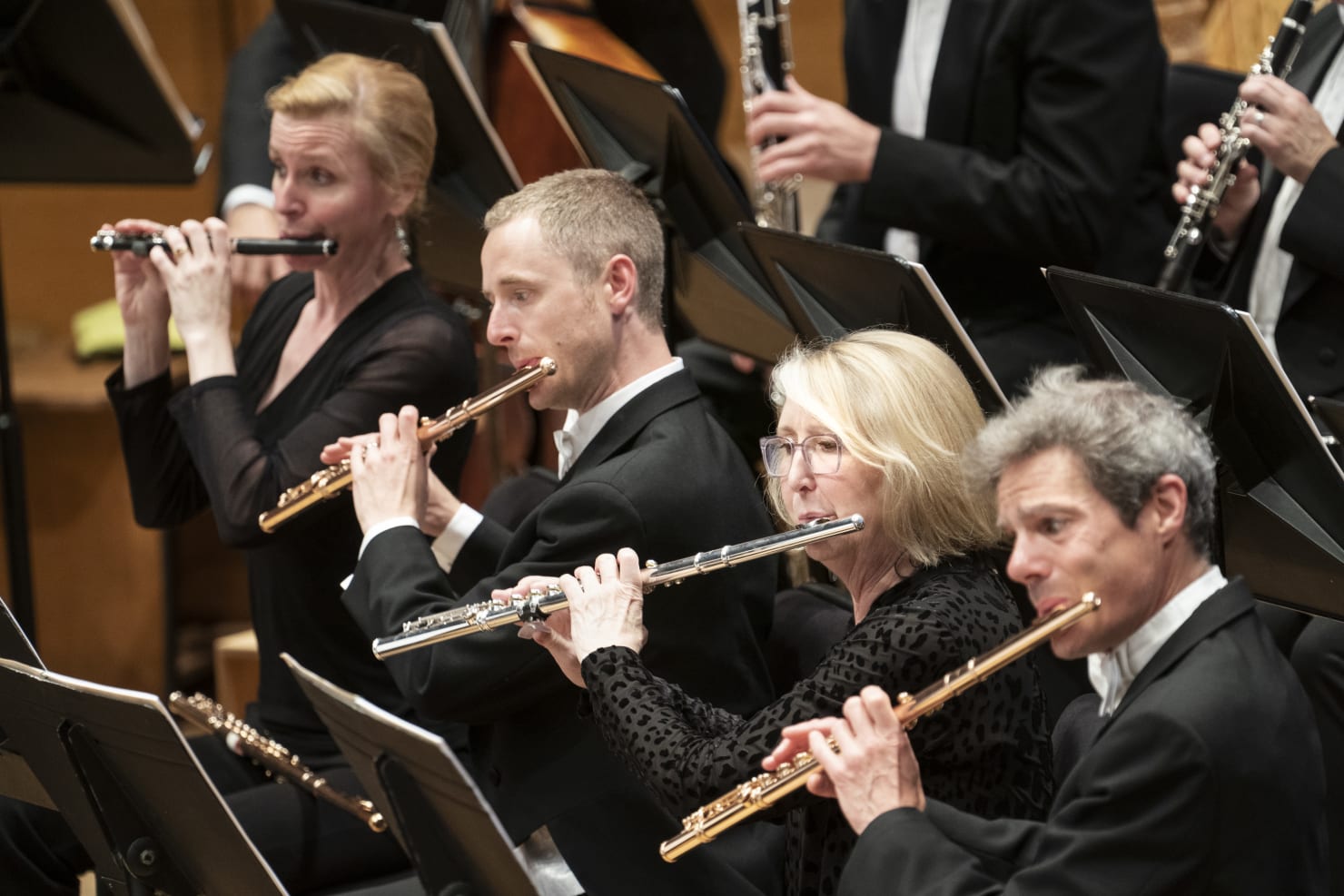Saluting Our Retiring Musicians

This spring and summer we marked the retirements of six longtime Minnesota Orchestra musicians, whose collective service to the ensemble spans an extraordinary 233 years. Join us in celebrating their achievements and wishing them well!
When violinist Taichi Chen was a young student at Japan’s Toho Gakuen School of Music, he was unaware that his career would intersect with his roommate Eiji Oue’s decades later—in 1995, when Oue became the Minnesota Orchestra’s ninth music director. Chen joined the Orchestra ten years before his former roommate, and earlier this year retired after a long career as a second violinist, frequent chamber music performer and regular participant in the Orchestra’s educational activities. Offstage he is well known for a long-running friendly rivalry: chess matches with Orchestra bass section member Robert Anderson, often taking place during rehearsal breaks and concert intermissions. Music is a shared family interest with his wife Robin, a fellow violinist with whom he performs often, and their children, who have played an assortment of instruments.
Born in Taiwan, Chen earned two degrees at Northern Illinois University and also studied at Boston University. In a 2006 interview, he recalled his first year with the Orchestra as “both exciting and somewhat intimidating. Everyone here could really play”—as well as that season’s tour to Hong Kong and standout concerts at Orchestra Hall in 1986, when Erich Leinsdorf conducted Bruckner’s Eighth Symphony. “I’ve been a great fan of Bruckner ever since,” Chen commented. “He’s a great composer to play in the car on those long trips—the music makes the scenery even more vibrant and beautiful.”
Following the Minnesota Orchestra’s concerts in June, Co-Principal Bassoon Mark Kelley’s distinguished four-decade career with the ensemble came to a close. The Nebraska native, who joined the Orchestra in 1982, served here in many capacities, including on numerous occasions as soloist, in many chamber music concerts, and in a vital leadership capacity as acting principal bassoon in 2016 and 2017 between the retirement of previous Principal Bassoon John Miller, Jr., and the appointment of his successor Fei Xie. High on Kelley’s list of favorite Orchestra memories are trips to Australia and Hong Kong with Sir Neville Marriner, as well as the more recent visits to Cuba and South Africa under Osmo Vänskä’s leadership.
A graduate of the University of Nebraska, Kelley has been a committed educator throughout his career, working often with preschoolers in FRIENDS of the Minnesota Orchestra’s Kinder Konzerts and previously serving on the faculty of St. Olaf College. His wife Cheryl is also a bassoonist and has performed with the Orchestra both in Minnesota and on tour. “I am blessed to have been in a great orchestra with wonderful people, and to live in a terrific city in which to raise our family,” Kelley says, adding that in retirement he “plans to try my hand at landscape painting and to travel, especially to places the Orchestra has gone.”
While violinist Rudolf Lekhter reflected on his 43-year tenure with the Minnesota Orchestra that ended earlier this year, his thoughts returned to where it all began in 1979, when the Odessa native auditioned at Orchestra Hall after five years in the Leningrad Philharmonic. Then as now, the process begins with hundreds of auditioners from around the world playing one at a time behind a screen—providing “fairness for the candidates—nobody knows your identity,” he comments. A lucky few advance to a third round for the committee, and the winner is given a two-year probationary term in the Orchestra, after which time they may or may not get tenure to become a permanent member. “This gives an assurance that our Orchestra musicians are of the highest international standards,” he says.
Although Lekhter spent most of his career as a regular first violin section member, he served for a period as acting assistant concertmaster and performed as concerto soloist under Sir Neville Marriner, Leonard Slatkin and Maxim Shostakovich. He fondly remembers the 2007 stage production of Grieg’s Peer Gynt under Osmo Vänskä’s direction—“music that was very familiar to me since childhood, but the first time I could see the action on stage matching beautiful music.” His retirement plans are “simple—stay alive, listen to beautiful music, maybe a couple of languages to learn, and of course, reading.”
According to a cliché, you should never meet your heroes—but Richard Marshall paid the saying no heed in 1984 when he auditioned for the Minnesota Orchestra and one of his longtime heroes, Sir Neville Marriner, appointed him to the viola section, where he served for most of his tenure as co-principal viola and retired this June. After Marriner passed away in 2016 at age 92, Marshall reflected to the Star Tribune that “It was a big thrill, not only to be in the same room with him...but to come and play with one of the giants in the recording industry and to come to a great orchestra led by him.”
Marshall, who earned a master’s degree from Northern Illinois University and trained first as a violinist, stepped into the solo spotlight in 2003, when he and Orchestra colleagues were featured in Stephen Paulus’ String Quartet Concerto, Pieces of Enlightenment. He performed at numerous chamber music concerts, worked often with students, played regularly with the Musical Offering chamber ensemble, and has performed with his wife Melinda, a Minnesota Opera Orchestra violinist. Of his time with the Minnesota Orchestra, he says: “I have been given a rare gift. I have gotten to be a member of a great Orchestra, performing great music, with great colleagues, and great conductors. To borrow from an oft-overused quote, I consider myself to be one of the luckiest musicians in the world.”
When Deborah Serafini retired from the Minnesota Orchestra’s first violin section this past March, she was the ensemble’s longest-tenured violinist. A Cleveland native, she began her path toward a music career decades earlier near the time of a unique encounter with the famous violinist Itzhak Perlman. “At age 17, while at a music camp in New York, I heard him perform the Tchaikovsky concerto with the Philadelphia Orchestra and then enjoyed playing Tiddlywinks and Ping-Pong with him afterwards,” she recalls. “That is the summer I decided to become a musician.”
In 1977, after earning her master’s degree at Indiana University, Serafini was hired by the Minnesota Orchestra’s sixth music director, Stanislaw Skrowaczewski. For many years she was a fixture of the Orchestra’s chamber music performances, notably performing Schumann’s Piano Quintet with Hélène Grimaud at Sommerfest 1999, and in August 2020 playing Tchaikovsky’s string sextet Souvenir de Florence on Peavey Plaza in the early months of the COVID-19 pandemic. She was also a regular participant in FRIENDS of the Minnesota Orchestra’s Kinder Konzerts, part of her longtime commitment to educational activities. Local musician Paul Chlebeck, mentioning Serafini’s 1995 guest appearance with the Minnesota Philharmonic Orchestra as soloist in a Bach violin concerto, summed up the sentiment of Orchestra musicians, staff and audiences in an online comment: “A million thanks for making beautiful music.”
Wendy Williams, who joined the Minnesota Orchestra’s flute section in 1992 and retired officially in June, performed her final concert with the Orchestra in March 2020—the last concert before the pandemic shutdown, played for a radio audience only. She recalls that performance as “one of those moments where I was able to play solos on both flute and alto flute, breathing and blending together with my wind colleagues, and reach audience members through the historic broadcast at the start of the pandemic.”
A standout moment of Williams’ tenure was sharing center stage with Principal Harp Kathy Kienzle in March 2010 performances of Mozart’s Concerto for Flute and Harp. Among her other favorite Orchestra memories is Osmo Vänskä’s first concert as a guest conductor in 2000, in a performance of Sibelius’ Symphony No. 6. “I happened to be eight months pregnant at the time, and my soon-to-be born son Jackson was kicking wildly in my belly as I played long sustained wind lines on the flute,” she remembers. “Osmo looked as if he had all the confidence in the world in me, and I appreciated his confidence in me over the 20 years ahead.” In general, she adds that “The value of holding our Orchestra and staff as a family has been a great gift from Osmo during his tenure. Osmo supported us touring with our children and cared about our families. In spite of his Finnish demeanor, he sported a great sense of humor. Whether arriving at a Lake Harriet concert on his motorcycle or wearing a wild outfit for an ABBA concert, Osmo was willing to have fun with the orchestra. At the same time, he brought the same sense of energy and commitment to every concert we played, whether in Wilmar, Minnesota, in Carnegie Hall or in the Musikverein in Vienna.”
During the pandemic, Williams began training in the field of coaching: “I became certified as a Wellness Coach through the Mayo Clinic, as a Grief and Loss Specialist through UW-Madison, and then through the National Board of Health and Wellness Coaches.” She now serves and supports people in new ways through her business, Weave Wellbeing Coaching, and will continue to attend concerts “to hear music I love and that is new to me.”
Related Articles

Meet the Musicians
Minnesota Orchestra Musicians Around Town
When Minnesota Orchestra musicians aren’t at Orchestra Hall, you can find many of them around the Twin Cities and beyond in other types of musical performances.

Meet the Musicians
A Q&A with Music Innovator Wordsmith

Meet the Musicians
Meet a Musician: Eric Sjostrom

Meet the Musicians
Musicians Shout Out Their Teachers

Meet the Musicians
